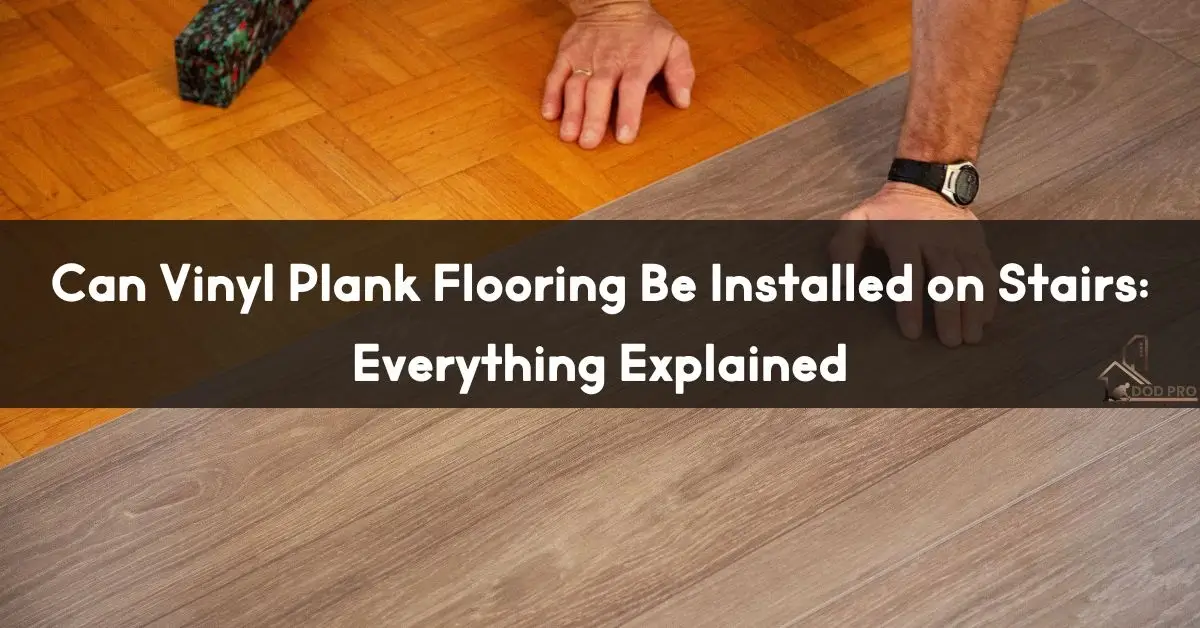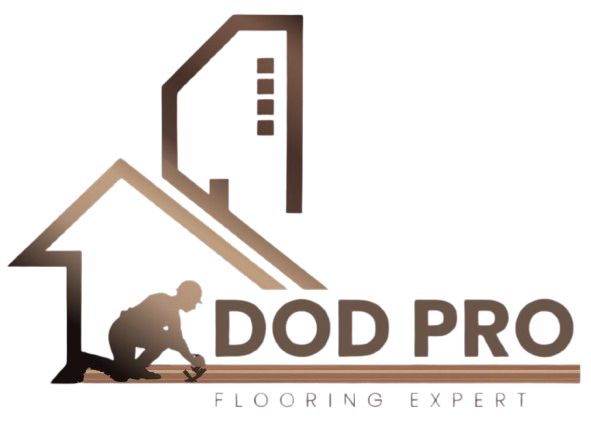Vinyl plank flooring is a great choice for homeowners, offering an affordable option that is both durable and looks good. This type of flooring has many benefits, and if you’ve already installed it, you probably know some of them. But what about stairs? Can vinyl plank flooring be used on them? In this blog, we’ll explain everything you need to know—so let’s get started!
Can vinyl plank flooring be installed on stairs?
Yes, you can put vinyl plank flooring on stairs, and it’s a great choice for several reasons. Stairs get a lot of use and can get damaged easily, so durable flooring is important. Vinyl plank flooring is a perfect option because it’s strong and can handle heavy foot traffic without getting damaged. They can also be costly because of their installation process. However, their benefits are as worth as their price. making vinyl plank flooring an excellent option for stairs installations.
Is it cheaper to install carpet or vinyl flooring? Click here to learn more
How to install vinyl plank flooring on stairs?

Here are the steps of installing vinyl plank flooring on stairs:
Stair Preparation
First of all, you need to remove your current flooring material from the stairs. Make sure your stairs are clean, and they don’t have any dirt. If you find any nails or staples sticking out from the surface, grab a hammer or pliers. Gently tap or pull them out to avoid any gaps. This will help create a clean and smooth surface for your project.
Cutting:
Carefully measure the size of each stair. Be sure to include any part of the stair step that sticks out at the edge in your measurements. This will help you get the right size. Its important to that each piece fits equally
Installation of threads:
Start at the bottom of the stairs and work your way up. First, spread a thin layer of construction adhesive on the stair tread using a caulking gun. Then, place the plank on the tread, pressing it down strongly. Make sure it’s straight and even with the edge. Repeat this for each step until you reach the top of the stairs.
Risers:
Measure the height and width of each riser (the vertical part of the step). Cut the planks to fit these measurements. Apply adhesive to the back of the plank and press it hardly onto the riser, making sure it is flush with the tread above it.
Secure the planks:
Once all the planks are in place, use a rubber mallet or a hammer with a tapping block to make sure the planks fit tightly together. Check that the planks are securely stuck to the stairs and there are no loose pieces.
Finishing:
If there are any gaps or exposed edges, install stair nosing or trim to give it a neat look and added safety. Use adhesive or fasteners to secure the trim, making sure it’s flush with both the LVP and the edge of the stairs.
Adhesive:
Allow the adhesive to dry as per the manufacturer’s instructions before walking on the stairs or putting anything heavy on them.
Maintenance:
To keep the stairs looking good, sweep or vacuum regularly to remove dirt. Clean up spills quickly to avoid stains, and don’t use harsh chemicals or scrubbers that might damage the surface.
Pros and Cons of Using Vinyl Plank Flooring on Stairs
Choosing vinyl plank flooring for stairs comes with both benefits and drawbacks. Understanding these can help homeowners make better decisions for their spaces.
Pros
Below is the list of some pros of using vinyl plank flooring on stairs:
Durability
Vinyl plank flooring is tough and can handle daily use, making it a great choice for busy areas like stairs.
Maintenance
Keeping vinyl planks clean is simple. Regular sweeping and occasional mopping are usually enough to maintain their appearance.
Affordable
Compared to hardwood or tile, vinyl plank flooring is often more budget-friendly, both in terms of materials and installation.
Variety of Styles
Vinyl planks come in many designs and can look like wood, stone, or tile, offering plenty of style choices.
Safer Option
Vinyl flooring is often slip-resistant, making stairs safer—especially in homes with kids or older adults.
Cons
Below is the list of some cons of using vinyl plank flooring on stairs:
Not Always Eco-Friendly
Some vinyl flooring contains chemicals that aren’t good for the environment. Look for options with certifications like Floor Score to minimize this concern.
Temperature Sensitivity
Vinyl can expand or shrink with extreme temperature changes. While this isn’t usually an issue indoors, it’s something to keep in mind.
Hard to Repair
If a piece gets damaged, you’ll likely need to replace the entire plank instead of fixing just one small section.
Feels Less Authentic
Although it can look like real wood or stone, vinyl doesn’t have the same natural feel or texture.
Lower Home Value
Vinyl plank flooring may not boost your home’s value as much as natural materials like hardwood.
Want to learn how to install marine vinyl flooring? Click here
Conclusion:
Vinyl plank flooring is a great option for both floors and stairs. It’s strong, affordable, and comes in many styles, making it a smart and stylish choice for homes. While it has a few downsides, like being harder to repair or not feeling like real wood, its benefits—like durability, easy maintenance, and safety—make it worth considering. With proper installation and care, vinyl plank flooring can last a long time and keep your stairs looking great.
FAQs:
Q1. Can vinyl plank flooring be installed on stairs?
A: Yes, vinyl plank flooring can be installed on stairs. It’s durable, easy to clean, and provides a stylish, seamless look. With proper preparation and adhesive, it works well on both straight and curved staircases.
Q2. Is vinyl plank flooring a good choice for stairs?
A: Absolutely! Vinyl plank flooring is durable, affordable, and slip-resistant, making it a safe and stylish choice for stairs. It also comes in many designs, allowing you to match it with the rest of your home.
Q3. How much does it cost to install vinyl plank flooring on stairs?
A: Professional installation costs range from $40–$100 per stair, including materials. DIY installation is more affordable, with costs mainly for vinyl planks and tools, depending on the quality of materials.
Q4. Do I need stair nosing with vinyl plank flooring?
A: Yes, stair nosing is essential for safety, preventing edges from chipping, and giving your stairs a clean, finished look. It also enhances durability and adds a professional touch.



